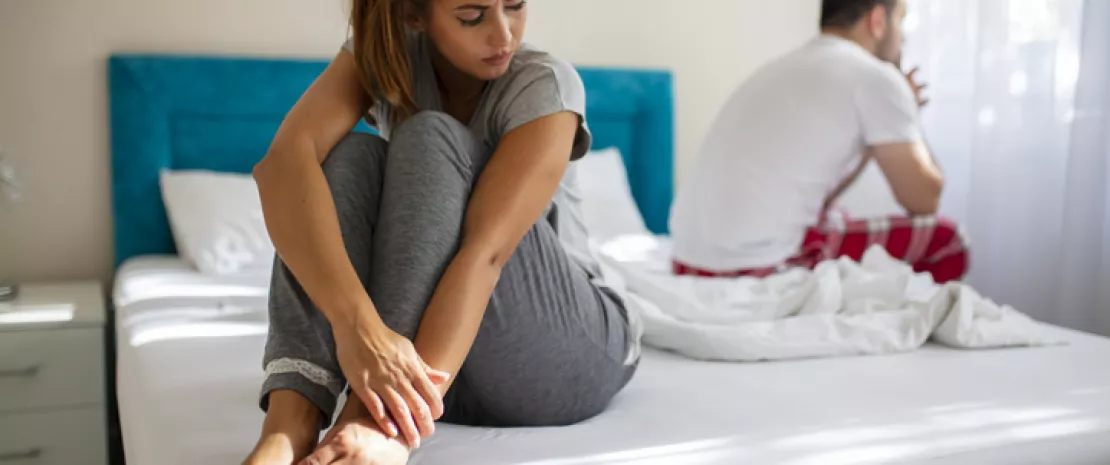Libido: gut bacteria spoiling the fun
Low libido is often blamed on excessive routine or the passing years. What if there were a less obvious culprit, one quietly nestled inside our gut?
- Learn all about microbiota
- Microbiota and related conditions
- Act on your microbiota
- Publications
- About the Institute
Healthcare professionals section
Find here your dedicated section
Sources
This article is based on scientific information

About this article
Loss of libido is a sexual disorder with multiple consequences, including reduced quality of life, low self-confidence and self-esteem, and a loss of connection with one’s partner. Doctors use the term “hypoactive sexual desire disorder” (HSDD) when a deficiency or absence of sexual desire causes marked distress or interpersonal difficulties. This combination of symptoms (low desire and associated distress) is present in up to 10% of American women, with similar prevalence rates seen across the globe.
The gut microbiota has already been implicated in certain mental and neurological conditions and recent studies suggest it may play a role in loss of libido and HSDD, which are partly regulated by the brain.
Bacteria, emotions, and sexuality
To find out more, researchers compared the stool of 24 women with HSDD to that of 22 women with normal libido. In the HSDD subjects, they observed a lower abundance of certain bacteria, while others, such as Lactobacillus and Bifidobacterium, increased in number. The greater the differences in abundance compared to the microbiota of the women with normal libido, the greater the drop in sexual desire. More research is required to understand the mechanisms at play, though gut bacteria are thought to secret small molecules into the body that may influence the brain. The stakes are high, since these still tentative results may one day lead to improved management of low libido in women.
Serenity or desire, do we have to choose?
The authors also point out that high levels of Lactobacillus and Bifidobacterium–which signal a loss of libido–have previously been associated with a reduction in aggressive thoughts and feelings of sadness. They believe everything may be linked: anger or stress could represent a prelude to sexuality, particularly since these emotional states generate arousal that can then turn into desire. In other words, we may have to choose between serenity and libido!
Li G, Li W, Song B, et al. Differences in the Gut Microbiome of Women With and Without Hypoactive Sexual Desire Disorder: Case Control Study. J Med Internet Res. 2021 Feb 25;23(2):e25342.












